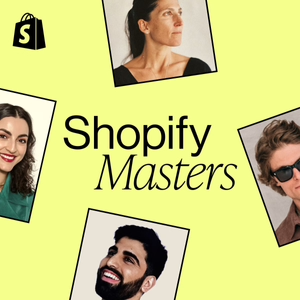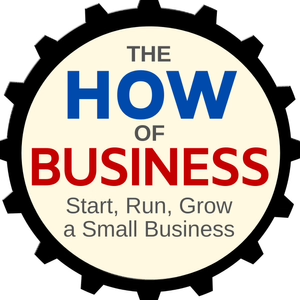
#330 Les Schwab (Charlie Munger recommended this book)
12/11/23 • 97 min
4 Listeners
What I learned from rereading Les Schwab Pride In Performance: Keep It Going! by Les Schwab.
----
----
(8:00) I didn't know how to ride a bike. We never had one. All the other young kids delivered newspapers on a bike.
He's got no money. He doesn't have a bike. So he ran his routes for two months in order to get enough money to buy his first bike. He’d run nine or 10 miles a day.
(8:00) I was too proud to complain.
(10:00) For a poor boy, money was much more important than pride.
(10:00) Am I Being Too Subtle?: Straight Talk From a Business Rebel by Sam Zell. (Founders #269)
(13:00) I was young. I was cocky. But the same cockiness helped me a lot in going through life.
(15:00) The very first sentence describing his very first day in business is mind blowing: I had never fixed a flat tire in my life.
(15:00) the NEW Poor Charlie's Almanack: The Wit and Wisdom of Charlie Munger (Founders #329)
(29:00) Sam Walton: The Inside Story of America's Richest Man by Vance H. Trimble (Founders #150)
(35:00) I always knew that if we fixed all the flat tires in town, we'd have all the tire business in town.
(40:00) If we become complacent, then brother, it's all over with.
(52:00) Grinding It Out: The Making of McDonald's by Ray Kroc (Founders #293)
(56:00) If you’re not serving the customer, or supporting the folks who do, we don’t need you. —Sam Walton
(1:00:00) The company paid low wages and had a lower overhead. The flaw was they didn’t get —with the low pay— near the quality of employees we had.
(1:01:00) Life is hard for the man who thinks he can take a shortcut.
(1:06:00) Decision making should always be made at the lowest possible level.
(1:08:00) Whatever you do, you must do it with gusto, you must do it in volume. It is a case of repeat, repeat, repeat.
(1:08:00) Charlie Munger analyzes why Les Schwab was successful.
(1:11:00) Extreme success is likely to be caused by some combination of the following factors:
1 Extreme maximization or minimization of one or two variables. Think Costco.
2 Adding success factors so that a bigger combination drives success, often in nonlinear fashion, as one is reminded by the concept of breakpoint and the concept of critical mass in physics. Often, results are not linear. You get a little bit more mass and you get a lollapalooza result. And, of course, I've been searching for lollapalooza results all my life, so I'm very interested in models that explain their occurrence.
3 An extreme of good performance over many factors. Example, Toyota or Les Schwab.
4 Catching and riding some sort of big wave. Example, Oracle.
----
----
“I have listened to every episode released and look forward to every episode that comes out. The only criticism I would have is that after each podcast I usually want to buy the book because I am interested, so my poor wallet suffers.” — Gareth
Be like Gareth. Buy a book: All the books featured on Founders Podcast
----
Founders Notes gives you the ability to tap into the collective knowledge of history's greatest entrepreneurs on demand. Use it to supplement the decisions you make in your work. Get access to Founders Notes here.
----
“I have listened to every episode released and look forward to every episode that comes out. The only criticism I would have is that after each podcast I usually want to buy the book because I am interested so my poor wallet suffers. ” — Gareth
Be like Gareth. Buy a book: All the books featured on Founders Podcast
What I learned from rereading Les Schwab Pride In Performance: Keep It Going! by Les Schwab.
----
----
(8:00) I didn't know how to ride a bike. We never had one. All the other young kids delivered newspapers on a bike.
He's got no money. He doesn't have a bike. So he ran his routes for two months in order to get enough money to buy his first bike. He’d run nine or 10 miles a day.
(8:00) I was too proud to complain.
(10:00) For a poor boy, money was much more important than pride.
(10:00) Am I Being Too Subtle?: Straight Talk From a Business Rebel by Sam Zell. (Founders #269)
(13:00) I was young. I was cocky. But the same cockiness helped me a lot in going through life.
(15:00) The very first sentence describing his very first day in business is mind blowing: I had never fixed a flat tire in my life.
(15:00) the NEW Poor Charlie's Almanack: The Wit and Wisdom of Charlie Munger (Founders #329)
(29:00) Sam Walton: The Inside Story of America's Richest Man by Vance H. Trimble (Founders #150)
(35:00) I always knew that if we fixed all the flat tires in town, we'd have all the tire business in town.
(40:00) If we become complacent, then brother, it's all over with.
(52:00) Grinding It Out: The Making of McDonald's by Ray Kroc (Founders #293)
(56:00) If you’re not serving the customer, or supporting the folks who do, we don’t need you. —Sam Walton
(1:00:00) The company paid low wages and had a lower overhead. The flaw was they didn’t get —with the low pay— near the quality of employees we had.
(1:01:00) Life is hard for the man who thinks he can take a shortcut.
(1:06:00) Decision making should always be made at the lowest possible level.
(1:08:00) Whatever you do, you must do it with gusto, you must do it in volume. It is a case of repeat, repeat, repeat.
(1:08:00) Charlie Munger analyzes why Les Schwab was successful.
(1:11:00) Extreme success is likely to be caused by some combination of the following factors:
1 Extreme maximization or minimization of one or two variables. Think Costco.
2 Adding success factors so that a bigger combination drives success, often in nonlinear fashion, as one is reminded by the concept of breakpoint and the concept of critical mass in physics. Often, results are not linear. You get a little bit more mass and you get a lollapalooza result. And, of course, I've been searching for lollapalooza results all my life, so I'm very interested in models that explain their occurrence.
3 An extreme of good performance over many factors. Example, Toyota or Les Schwab.
4 Catching and riding some sort of big wave. Example, Oracle.
----
----
“I have listened to every episode released and look forward to every episode that comes out. The only criticism I would have is that after each podcast I usually want to buy the book because I am interested, so my poor wallet suffers.” — Gareth
Be like Gareth. Buy a book: All the books featured on Founders Podcast
----
Founders Notes gives you the ability to tap into the collective knowledge of history's greatest entrepreneurs on demand. Use it to supplement the decisions you make in your work. Get access to Founders Notes here.
----
“I have listened to every episode released and look forward to every episode that comes out. The only criticism I would have is that after each podcast I usually want to buy the book because I am interested so my poor wallet suffers. ” — Gareth
Be like Gareth. Buy a book: All the books featured on Founders Podcast
Previous Episode

#329 Charlie Munger (the NEW Poor Charlie's Almanack)
What I learned from reading the NEW Poor Charlie's Almanack: The Wit and Wisdom of Charlie Munger.
----
Listen to this incredible conversation between Charlie Munger and John Collison on Invest Like The Best.
----
----
(2:00) The practical wisdom of Poor Charlie's Almanack, this ode to curiosity, generosity, and virtue will similarly compound at successive generations of entrepreneurial readers extend his lessons to their own circumstances.
(12:00) Education is the process whereby the ability to lead a good life is acquired. — Socrates: A Man for Our Times by Paul Johnson. (Founders #252)
(22:00) Trust is one of the greatest economic forces on earth.
(29:00) Charlie is content to trust his own judgment when it runs counter to the wisdom of the herd.
(31:00) Animated: Charlie Munger: The Psychology of Human Misjudgement
(31:30) Aim for durability. Durability has always been a first rate virtue in Charlie’s eyes.
(32:00) Charlie only focuses on great businesses and great businesses have moats.
(33:00) Johnny Carson by Henry Bushkin. (Founders #183)
(42:00) You can flourish in a niche: People who specialize in the business world —and get very good because they specialize— frequently find good economics that they wouldn't get any other way.
(45:00) Being so well known has advantages of scale. This is what you might call an informational advantage. It increases social proof.
(46:30) Business Breakdowns episode on Coca Cola
(49:00) Occasionally scaling down and intensifying gives you a big advantage. (You can find great profit margins this way)
(50:00) Sam Walton: Made In America by Sam Walton. (Founders #234)
(51:00) Scale and fanaticism combined is very powerful. (Think Sam Walton)
(57:00) I also believed then, as I do now after more than fifty years as a money manager, that the surest way to get rich is to play only those games or make those investments where I have an edge. — A Man for All Markets: From Las Vegas to Wall Street, How I Beat the Dealer and the Market by Ed Thorp. (Founders #222)
(1:08:00) The best thing a human being can do is help another human being know more.
(1:14:00) Optimism is a moral duty. — Edwin Land
(1:17:00) You want to maximize the playing time of your top players.
(1:17:00) The game of competitive life often requires maximizing the experience of the people who have the most aptitude and the most determination as learning machines.
(1:22:00) The most important rule in management is get the incentives right.
(1:25:00) Never, ever think about something else when you should be thinking about the power of incentives.
----
----
“I have listened to every episode released and look forward to every episode that comes out. The only criticism I would have is that after each podcast I usually want to buy the book because I am interested, so my poor wallet suffers.” — Gareth
Be like Gareth. Buy a book: All the books featured on Founders Podcast
----
Founders Notes gives you the ability to tap into the collective knowledge of history's greatest entrepreneurs on demand. Use it to supplement the decisions you make in your work. Get access to Founders Notes here.
----
“I have listened to every episode released and look forward to every episode that comes out. The only criticism I would have is that after each podcast I usually want to buy the book because I am interested so my poor wallet suffers. ” — Gareth
Be like Gareth. Buy a book: All the books featured on Founders Podcast
Next Episode

#331 Christian Dior
What I learned from reading Dior by Dior: The Autobiography of Christian Dior and Creators by Paul Johnson.
----
----
(4:00) The Taste of Luxury: Bernard Arnault and the Moet-Hennessy Louis Vuitton Story by Nadege Forestier and Nazanine Ravai. (Founders #296)
(5:00) Opportunity is a strange beast. It frequently appears after a loss.
(6:00) Dior was a nobody in his forties, with nothing in his design career to suggest genius.
(6:00) When you read biographies of people who've done great work, it's remarkable how much luck is involved. They discover what to work on as a result of a chance meeting, or by reading a book they happen to pick up. So you need to make yourself a big target for luck, and the way to do that is to be curious. Try lots of things, meet lots of people, read lots of books, ask lots of questions.
— How To Do Great Work by Paul Graham. (Founders #314)
(7:00) Dior told him: “I am not interested in managing a clothing factory. What you need, and I would like to run, is a craftsman’s workshop, in which we would recruit the very best people in the trade, to reestablish in Paris a salon for the greatest luxury and the highest standards of workmanship. It will cost a great deal of money and entail much risk.”
(8:00) He spat in the face of postwar egalitarian democracy and said, in so many words, “I want to make the rich feel rich again.” His first collection turned out to be the most successful in fashion history.
(18:00) I envisioned my fashion house as a craftsman’s workshop rather than a clothing factory.
(19:00) A fortune teller tells Dior he must do found his fashion house in spite of his fears and doubts: She ordered me sternly to accept the Boussac offer at once. You must create the house of Christian Dior, whatever the conditions, she told me. Nothing anyone will offer you later will compare with the chance which is open to you now.
(22:00) Dior said Balenciaga was "the master of us all" — Balenciaga (Founders #315)
(26:00) Gossip and malicious rumors are worth more than the most expensive publicity campaign in the world.
(29:00) The most passionate adventures of my life have been with my clothes. I am obsessed with them.
(30:00) When asked what was the best asset a man could have, Albert Lasker replied, ‘Humility in the presence of a good idea.’ It is horribly difficult to recognize a good idea. I shudder to think how many I have rejected. Research can’t help you much, because it cannot predict the cumulative value of an idea. — Ogilvy on Advertising by David Ogilvy.
----
----
“I have listened to every episode released and look forward to every episode that comes out. The only criticism I would have is that after each podcast I usually want to buy the book because I am interested, so my poor wallet suffers.” — Gareth
Be like Gareth. Buy a book: All the books featured on Founders Podcast
----
Founders Notes gives you the ability to tap into the collective knowledge of history's greatest entrepreneurs on demand. Use it to supplement the decisions you make in your work. Get access to Founders Notes here.
----
“I have listened to every episode released and look forward to every episode that comes out. The only criticism I would have is that after each podcast I usually want to buy the book because I am interested so my poor wallet suffers. ” — Gareth
Be like Gareth. Buy a book: All the books featured on Founders Podcast
If you like this episode you’ll love
Episode Comments
Featured in these lists
Generate a badge
Get a badge for your website that links back to this episode
<a href="https://goodpods.com/podcasts/founders-132822/330-les-schwab-charlie-munger-recommended-this-book-39133516"> <img src="https://storage.googleapis.com/goodpods-images-bucket/badges/generic-badge-1.svg" alt="listen to #330 les schwab (charlie munger recommended this book) on goodpods" style="width: 225px" /> </a>
Copy







